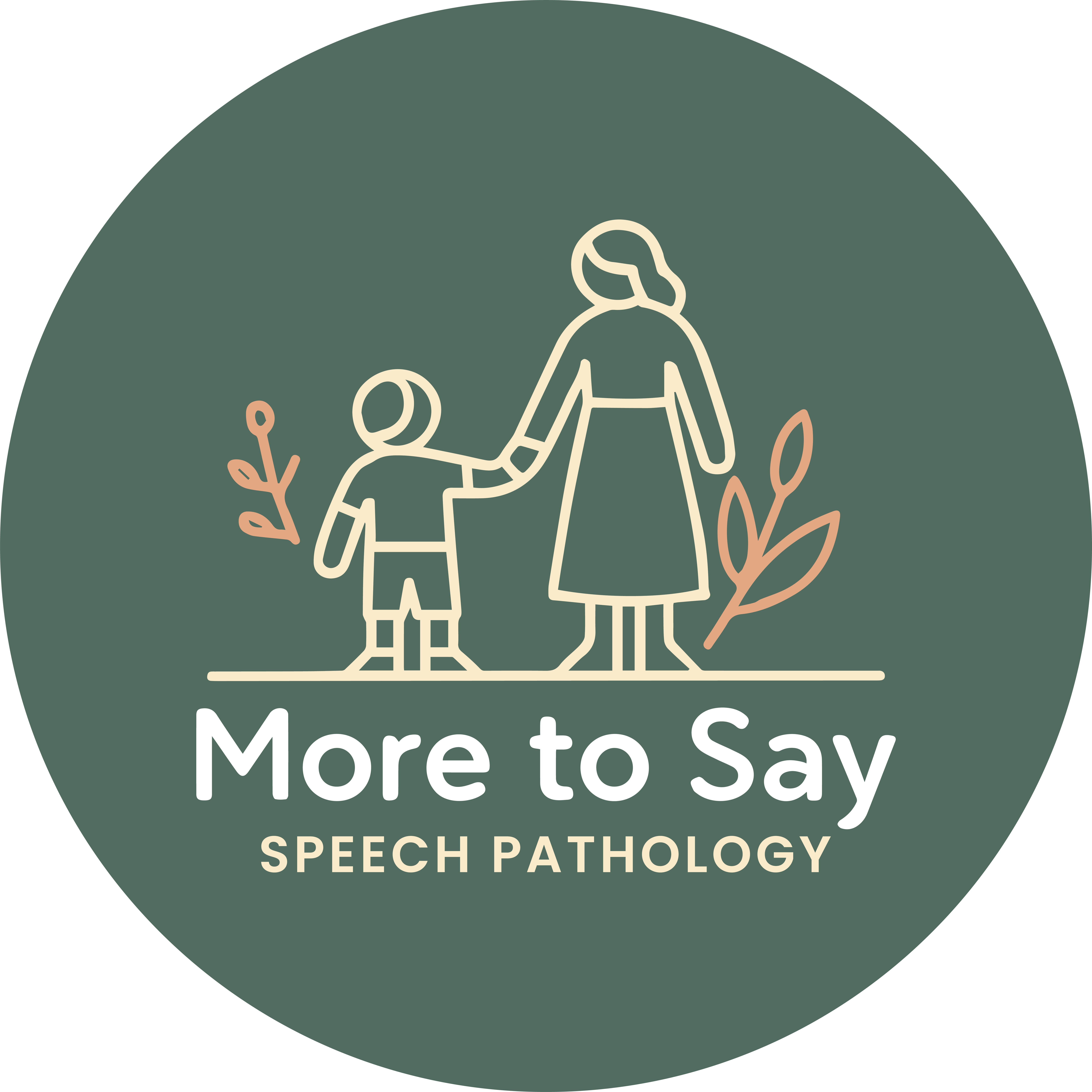General Speech Therapy Questions
What does a speech pathologist do?
Speech pathologists support people with communication and feeding difficulties. This includes speech sounds, language development, social communication, literacy, stuttering, and feeding challenges.
How do I know if my child needs speech therapy?
Every child develops at their own pace, but if you have concerns about your child’s speech, language, or communication skills, it’s always best to seek support early. Some signs that your child may benefit from speech therapy include:
- Limited vocabulary or difficulty forming sentences
- Trouble being understood by others
- Difficulty following instructions or understanding questions
- Stuttering or disruptions in fluency
- Challenges with social interactions
- Feeding difficulties, such as avoiding textures or struggling with chewing/swallowing
If you’re unsure, I’d be happy to discuss your concerns and guide you on the next steps.
What age should my child start speech therapy?
Speech therapy can start as early as infancy, especially for children with feeding challenges or diagnosed conditions that may impact communication. Early intervention is key and there’s no such thing as too early for therapy. Therapy looks different at each age because we meet the child where they are at developmentally.
Mobile Therapy Questions
What is mobile therapy?
Mobile therapy means that sessions take place in your child’s natural environment rather than a clinic. This could be at home, preschool, daycare, school, or even in community settings like playgrounds or libraries.
Why is mobile therapy beneficial?
Children learn best in familiar environments where they feel comfortable and where therapy strategies can be easily applied in real-life situations. Mobile therapy allows for:
- Increased engagement in familiar surroundings
- Opportunities to embed therapy into daily routines
- Collaboration with parents, teachers, and caregivers to support progress across settings
Do I need to provide anything for mobile therapy?
No! The Speech Pathologist brings all the necessary resources and tailor sessions to your child’s interests and needs. However, using your child’s toys and books from home means that practice can continue throughout the week.
Parent Involvement Questions
How involved do parents need to be in therapy?
Parent involvement is one of the biggest factors in a child’s progress. The approach is family-centred, meaning the Speech Pathologist works closely with parents and caregivers to provide strategies that can be used in everyday life. Simple, consistent interactions—like modeling new words during play —can make a huge difference.
Developmental Milestones Questions
What are the key speech and language milestones?
Here are some general guidelines:
- By 12 months – Babbling, using gestures, responding to their name
- By 18 months – Saying at least 10 words, understanding simple instructions
- By 2 years – Combining two words (e.g., “more milk”), understanding simple questions
- By 3 years – Speaking in short sentences, being understood by familiar adults 75% of the time
- By 4 years – Telling short stories, using correct grammar, being understood by most people
- By 5 years – Speaking in longer sentences, using more complex vocabulary, following multi-step instructions
For more information, please refer to https://raisingchildren.net.au/.
Does my child need to speak to communicate?
No! Communication is about connection, not just speech. Some children use a mix of spoken words, gestures, AAC (like communication books or speech-generating devices), or sign language. My goal is to support functional communication—helping your child express their wants, needs, and ideas in a way that works best for them.
What is Augmentative and Alternative Communication (AAC), and how does it help?
AAC includes tools and strategies that help people communicate beyond speech. This can include:
- Low-tech options like key word sign, visual schedules, and communication boards
- High-tech options like speech-generating devices (iPads with communication apps)
AAC does not stop children from learning to speak—it actually supports language development by giving them another way to express themselves.
Contact Us
We would love to hear from you! If you have any questions about our services or would like to discuss whether speech therapy is the right fit for your child, feel free to reach out.
📍 Location: Mobile therapy between Austinmer and Wollongong, including surrounding suburbs + Telehealth available Australia-wide
📧 Email: brooke@moretosay.com.au
📞 Phone: 0478455185
Resources
Please find information about children’s development on the following websites:
Speech Pathology Australia Communication Milestones
Please find useful tips to support a child’s communication here:
Western NSW Local Health District – Waiting for Speech Pathology Tips
